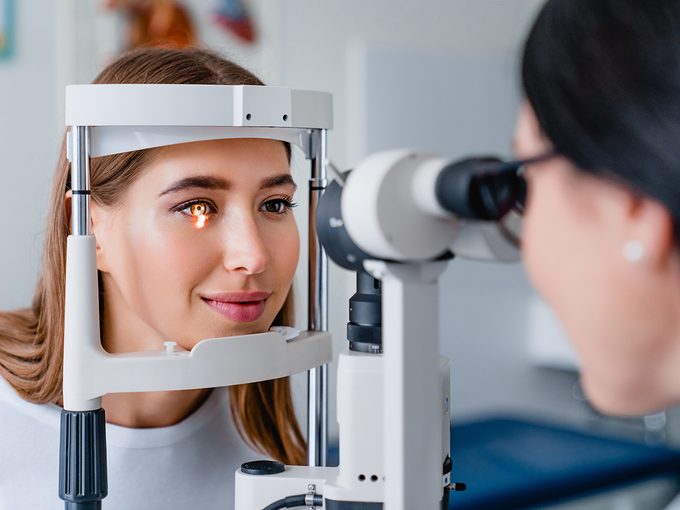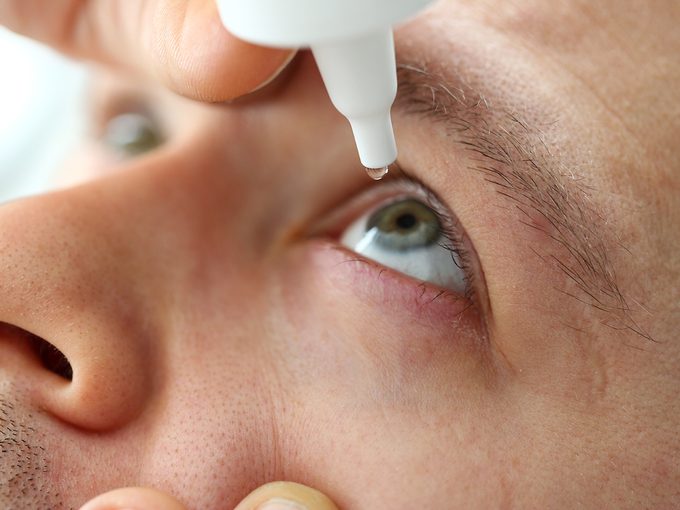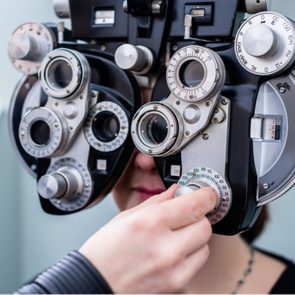How to Maintain Healthy Eyes at Every Age
Practical tips to prevent vision loss.

Healthy Eyes Begin with Eye Exams
The eyes may be a window to the soul, but they can also be a window to our vascular health. “It’s one of the few places where you can look inside the body,” explains Colin Mann, an ophthalmologist in Bridgewater, Nova Scotia.
For instance, since a branch of the carotid artery travels from the heart up each side of the neck and to the eyes, an optometrist can examine the blood vessels in the back of the eye to detect conditions that might not have manifested symptomatically. Narrow blood vessels in the retina could indicate high blood pressure; swelling of those same vessels might be a sign of diabetes. Left untreated, diabetes can lead to diabetic retinopathy, a condition in which high blood sugar levels damage blood vessels, eventually resulting in vision loss or blindness. As well as maintaining healthy blood glucose levels, Mann emphasizes that getting regular eye exams—at least every two years—is the best form of prevention, and an integral part of maintaining healthy eyes.
Brush up on the latest research in diabetes prevention.

Healthy Diet, Healthy Eyes
As we metabolize food, our cells produce chemical by-products called free radicals that steal electrons from nearby healthy cells, causing damage. Usually, the number of these free radicals is kept in check by antioxidants. But when antioxidant stores are depleted, free radicals can overwhelm and harm cells, leading to an imbalance known as oxidative stress. Research suggests that this imbalance occurs as we age and plays a role in the development of a number of illnesses and conditions, including cataracts. (Learn how to spot the signs of cataracts.)
Cataracts are most common in people over the age of 60 and are somewhat inevitable. In fact, cataract surgery, where the cloudy lens is removed and replaced with an artificial one, is one of the most common surgeries in Canada. The good news for people with healthy diets, though, is that foods like dark leafy greens, red berries and nuts are rich in antioxidants—including lutein, zeaxanthin and vitamin C. These can all help the body defend itself against free radicals and delay the development of cataracts.
You can also reduce your risk of cataracts by blocking ultraviolet rays with sunglasses and a wide-brimmed hat.
Find out more sun protection tips you should always follow.

Quit Smoking
“Smoking is a significant risk factor for macular degeneration, which causes vision loss,” says Shamrozé Khan, assistant clinical professor of optometry at the University of Waterloo. In fact, smokers are up to four times more likely to develop this condition, which causes the cells in the centre of the retina to deteriorate. Age-related macular degeneration accounts for 90 percent of new cases of legal blindness in Canada, according to the Canadian Ophthalmological Society.

Try Medicated Eye Drops
Open-angle glaucoma—the most common form of the condition—is caused by the clogging of drainage canals in the eye. This increases pressure in the eye and damages the fibres that make up the optic nerve (the part of the eye that transmits images to the brain).
Due to its painless, insidious nature, glaucoma often goes undiagnosed until it’s in an advanced stage; people with glaucoma may only notice it when their field of vision narrows, sometimes described as “tunnel vision.” While surgeries like a trabeculectomy, which involves creating an opening under the eyelid to allow fluid to drain, can stop the progression of the condition, the vision loss can’t be recovered. With regular eye exams, however, glaucoma can be caught early and treated with prostaglandin analogs—medicated eye drops that dissolve blockages. A similar medicated-drop treatment introduced in the 1870s needed to be administered as much as 50 times in a 24-hour period, but now, thanks to the discovery of more effective compounds, a simple once-a-day will do.
Now that you know how to maintain healthy eyes, discover 10 tips to improve your eyesight.






